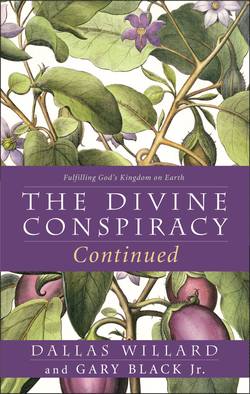Читать книгу The Divine Conspiracy Continued: Fulfilling God’s Kingdom on Earth - Dallas Willard, Dallas Willard - Страница 26
THE DIVISION OF LABOR AND THE DEVELOPMENT OF LEADERSHIP
ОглавлениеThe history of God’s use, direction, and purpose for leaders throughout the scriptures has brought us to a point where we can now consider, more precisely, the leadership function and why leaders are so integral and have such potential for either good or ill. Neither the Judeo-Christian perspective nor the theistic viewpoint, in either contemporary or historical terms, is alone in the pursuit of leading others to the good, peaceful, and just life. One example is found in Plato’s Republic. There he records a genuine search for a reasonable cause for pursuing justice rather than injustice. What may now seem strange to the postmodern ear is Plato’s presumption that injustice is the soul’s greatest evil and justice the soul’s greatest good.12
For Plato the greater good is defined as justice. This is not a theoretical statement. He holds that justice should be shown and understood simply by the consequences of its presence. In order to illuminate the reality of the goodness inherent in justice, Plato creates an illustration of the kind of social justice required of the city in order to better see the smaller reality of justice playing out in the lives of individuals.
At the beginning of this argument, Plato highlights Socrates’s crucial statement regarding the division of labor that is necessary for life in a city. A city begins because individual life is not self-sufficient. The rural farmer or herdsman must become a jack-of-all-trades and fulfill every need individually, which is time-consuming and requires multiple skills. Conversely, in urban life a natural division of labor and services developed that provided a means by which individuals could act together to share and trade their talents for the common welfare. Socrates suggests that a flourishing life is not possible if one is forced to focus entirely on individual needs. Instead, specialization of effort allows for greater effectiveness and efficiency, since, as individuals are “freed from other work to do the one thing [they are] naturally fit for at the right time, more work gets done easier and better.”13
Once cities are formed, city-states follow. We can say that the “public” is composed of the communal group of individuals who are affected by the consequences of certain actions and events to the degree that it becomes necessary and good for the potential results of those actions and events to be tended, watched over, and cared for. Since it is often the case that those who are directly impacted by these actions and events are not those in close proximity to their origin, it becomes necessary for certain individuals to be designated or elected as representatives. These persons are specifically tasked to ensure, to the best of their ability, that the “public’s” interests are preserved and protected. Here the position of a “leading official” is a natural outcome of the division of labor, and one is specifically tasked to oversee the functions that concern the general prosperity and well-being of those they represent.
Philosophers who probed the nature of the four basic human problems mentioned earlier, who contemplated their various twists and turns, also knew that the impact of these questions is not limited to individual lives. Nearly every potential answer also carries significant implications for societies as well. Our social arrangements—how individuals relate to one another in their spheres of life—need to be taken into account when discerning human well-being and acquiring the knowledge to act appropriately. This is especially true in what is termed an “open” society, which includes our modern versions of a liberal democracy. In “open” societies, people are allowed to choose and cherish choice in these matters. In “closed” societies the ability to discern the common good and to gain access to knowledge itself are often severely limited. Therefore, in an “open” system the important questions become: Who chooses and how are choices made?
The origin of public leadership, in all its various forms, is simply a historical development resulting from the recognition of the need to divide our labors in the pursuit of good and beneficial ways of attaining flourishing communities. Officials in government, law, medicine, business, education, clergy, and so on are leaders, spokespersons, and guides whose job is to preserve and protect the public’s best interest in their specific arena of community life. These leaders serve within a wide range of occupational fields that necessitate expertise, specific knowledge, and skill, also known as recondite knowledge.14
Our contemporary societies, cultures, and economies are as complicated and broad-scoped as our individual lives, because, in fact, we live in and either thrive or suffer through living social systems. As a result, a particularly vital issue that arises for modern democratic societies becomes who has knowledge, who has the expertise, who has the character, who can teach succeeding generations, who can protect, who can guide, and who can lead our public organizations in ways that position our society to achieve success? Where do we find these kinds of people?
